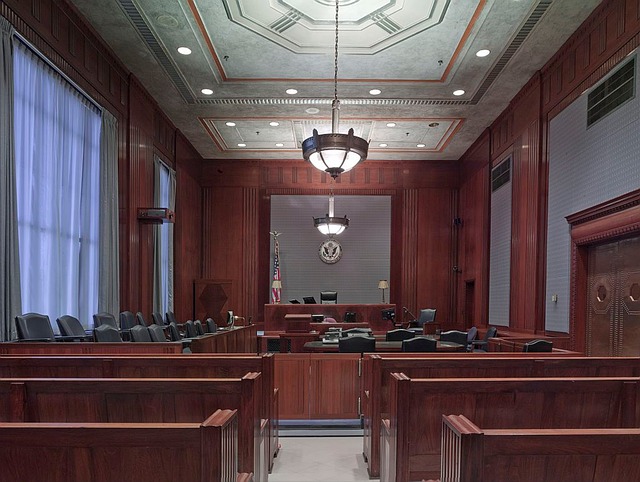A defective product attorney plays a vital role in helping consumers affected by faulty goods. They guide clients through settlement negotiations, leveraging evidence to secure favorable out-of-court agreements that may include compensation and design changes to prevent future incidents. These attorneys prepare for trial by reviewing cases, understanding product liability laws, and gathering evidence. Clients face crucial decisions: settle quickly but potentially short of full compensation or go to trial for substantial awards but lengthy, costly, and risky outcomes. The attorney's expertise balances the client's best interests, ensuring fair compensation for defective product-related suffering and effectively resolving disputes.
When facing a defective product lawsuit, choosing between settlement negotiations and trial is a pivotal decision. Understanding the dynamics of these processes is crucial, especially with the guidance of an experienced defective product attorney. This article delves into the art of settlement negotiations for defective product cases, explores the role of legal counsel in trial preparation, and compares the potential outcomes of settling versus going to court. Equip yourself with knowledge to make informed decisions with the help of a skilled defective product attorney.
- Understanding Settlement Negotiations for Defective Product Cases
- The Role of a Defective Product Attorney in Trial Preparation
- Comparing Outcomes: Settlement vs. Trial for Product Liability Claims
Understanding Settlement Negotiations for Defective Product Cases

When a consumer is harmed by a defective product, they often turn to a defective product attorney for legal recourse. One of the initial steps in such cases is settlement negotiations. This process involves both parties—the plaintiff (consumer) and the defendant (manufacturer or seller)—attempting to reach an agreement outside of court. A skilled defective product attorney plays a pivotal role here, guiding their client through these negotiations.
The goal is to avoid prolonged litigation and its associated costs and stresses. A well-prepared defective product attorney can leverage the strength of their client’s case, including any evidence of negligence or breach of fiduciary duty on the part of the defendant, to secure a favorable settlement. This might involve negotiating direct compensation for damages incurred, as well as changes to product design or safety standards to prevent future incidents in commercial disputes centered around product liability.
The Role of a Defective Product Attorney in Trial Preparation

A defective product attorney plays a pivotal role in trial preparation, ensuring that all legal avenues are explored and presented effectively. They begin by thoroughly reviewing the case, examining product liability aspects, and understanding the unique challenges posed by defective goods. This involves studying relevant laws, regulations, and previous court cases related to similar products, which can significantly impact the litigation strategy.
During preparation, these attorneys gather evidence, interview witnesses, and construct a compelling narrative. They might also collaborate with experts in fields like engineering or toxicology to assess product defects and their potential harm. This comprehensive approach is essential when considering cases that could range from real estate litigation over faulty construction materials to partnership disagreements involving defective equipment or nursing home neglect caused by poorly designed medical devices—all of which require a skilled defective product attorney to navigate complex legal landscapes.
Comparing Outcomes: Settlement vs. Trial for Product Liability Claims

When considering whether to settle a defective product case or proceed to trial, it’s crucial to evaluate the potential outcomes and their impact on clients’ rights and financial stability. While a settlement offers a quicker resolution, allowing individuals harmed by defective products to receive compensation for their injuries or losses, it may not always provide the full extent of recoverable damages. On the other hand, going to trial can lead to substantial monetary awards if liability is proven, but it’s a lengthy process that involves significant legal costs and risks.
A defective product attorney plays a pivotal role in guiding clients through these options by thoroughly assessing the case. They understand that each scenario presents unique challenges and opportunities. For instance, settlements often involve negotiating with manufacturers or retailers to reach an agreement on compensation, while trials demand presenting evidence to a judge or jury to establish liability and damages, highlighting potential fiduciary duty breaches. Ultimately, the decision should balance the client’s best interests, ensuring they receive fair compensation for their sufferings, whether through an out-of-court settlement or a successful trial outcome, thus addressing commercial disputes effectively.
When deciding between settlement negotiations and trial for a defective product case, having a skilled defective product attorney by your side is invaluable. They guide clients through complex legal processes, ensuring the best possible outcome. While settlements offer quicker resolution, trials can lead to substantial compensations if successful. Ultimately, the choice depends on factors like evidence strength, client preferences, and potential risks. Consulting with an experienced attorney equips you to make an informed decision tailored to your case.






